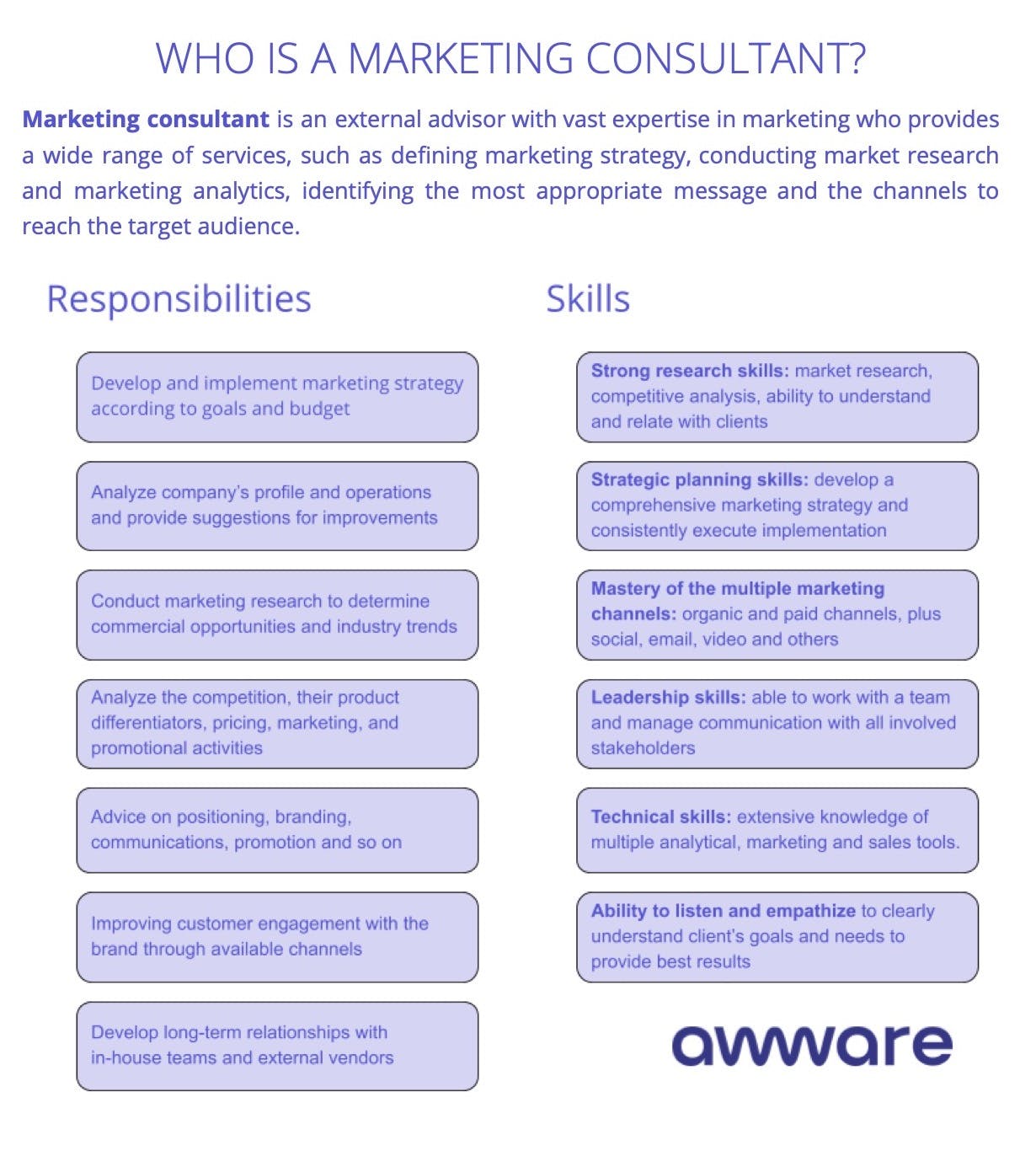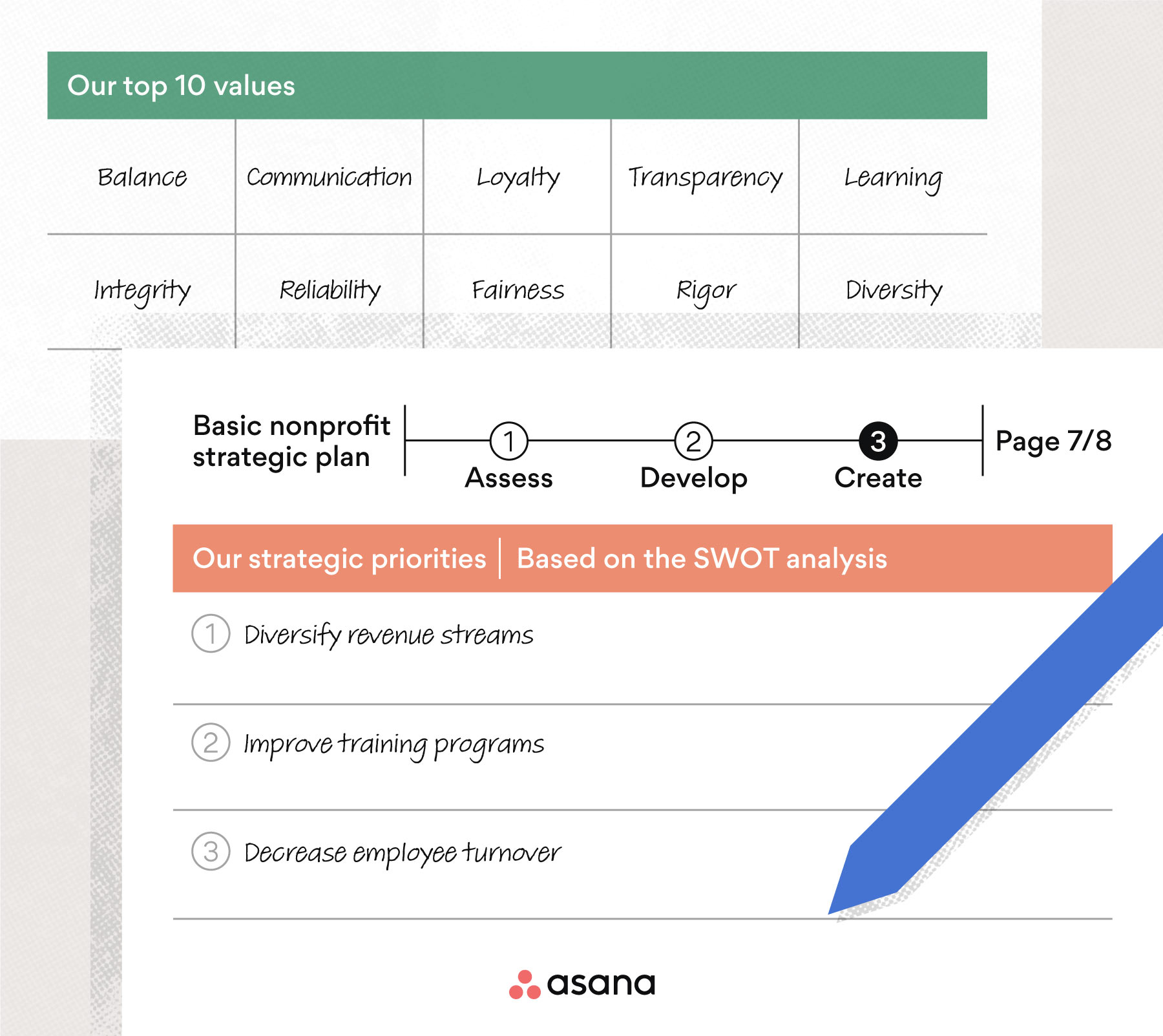
Consultants are professionals who advise companies on different aspects of their business. Consultants who work in the lower levels of the pyramid usually understand their work better and are often more sought-after by clients. Many desire to move up, however. Below are job descriptions and information for various types of consulting jobs.
Business consultant job description
A business consultant's job is to help a company find ways to improve its operations. This could involve helping the company merge, change its structure or other activities. They can also stand in for middle management during a transition period, focusing on improving day-to-day processes. A business consultant will review the current operations of a company and find any issues. Consulting can be a great way to help improve the production process and increase efficiency.
A business consultant is someone who works for a company on a contract or permanent basis. They have a lot of experience in particular industries and are able to use their knowledge to improve a company’s operations. They often meet with executives and department heads to discuss business goals and identify areas for improvement. They assist companies in developing ongoing budgets and conducting assessments.

Selecting a consulting company
Consulting firms can be a great option if you need help with your business. These companies can provide solutions for various business problems. Additionally, they can give advice on running the business. Your business's success depends on choosing the right consultant firm. It is essential that the firm you choose has the right experience to meet your requirements.
The best consulting firms will be efficient and provide results that you are happy with. Do not choose a sprawling, large firm that charges a high fee and says yes to all your requests. You want someone who can solve your problem. Not one who will just tell you what to do. The firm should be capable of assessing your business problem, evaluating all of your options, and delivering the results that you need.
Another consideration is culture. One of the biggest challenges in a project is if a company you choose to work with doesn't fit your cultural needs. Make sure to meet with the firm to ensure you are a good cultural fit. This will allow you to communicate more effectively with the firm and build a better client-consultant relationship.
Choosing a specialty area
The first step to building your brand is to pick a specialty for your business. A single focus can increase productivity and reduce costs. However, it's important to choose a stable and growing industry. By doing so, you will not be at risk of becoming obsolete. You can also gain credibility in the area you are working in, which is essential for positioning your brand.

A decision to focus on one area of expertise will limit your work and allow you to charge more. Clients will pay you for your expert knowledge in a particular field.
FAQ
How did modern consultancy become possible?
Accounting professionals were the first to become consultants. They helped companies manage their finances. Their skills in managing financial information led to them being called "accounting consultant". But, their role soon expanded to other areas such as human resource management.
The French word "to advise" is the origin of the term "consultant". It was first used by businessmen to refer to someone who could give advice about how to run an organisation. The word consultant is still used by most business owners to refer to any kind professional advisor.
Can anyone be an advisor?
A consultant is someone that helps you achieve your goal. They can offer advice on how to do it better, faster and cheaper.
A consultant can help you solve problems, make decision, or negotiate with people.
Many consultants are hired for specific projects and tasks.
In fact, most consultants are paid hourly or daily rates rather than per project.
How does consulting differ from freelancing?
Freelancers work as independent contractors and offer their services without the assistance of an agency or company. They generally charge an hourly rate depending on how long they spend on a client project. Consultants work for companies and agencies that employ them. Consultants are typically paid either monthly or annually.
Because they set their own hours and prices, freelancers are often more flexible than consultants. Consultants often offer better benefits such as vacation days and retirement plans, health insurance, and vacation days.
Do I have to pay tax on consulting income
Yes. Taxes will be charged on consulting profits. The amount you earn depends on your annual income.
If you are self-employed, expenses can be claimed on top of your salary. These expenses include rent, childcare and food.
However, you cannot deduct interest payments from loans, vehicle repairs, or the cost for equipment.
You cannot claim back less than PS10,000 in a given year.
However, you might still have to pay tax if your earnings are higher than the threshold. This depends on whether you are an employee or contractor.
The PAYE tax for employees and the VAT tax for contractors is generally paid as you earn.
How do I choose a good consultant?
There are three main factors to consider:
-
Experience - How experienced is this consultant? Is she an expert, beginner, intermediate or advanced consultant? Do her qualifications and knowledge show on her resume?
-
Education – What did this person learn at school? Did he/she study any relevant courses after graduating from high school? Is there evidence that he/she learned from the writing style?
-
Personality - Do we like this person? Would we prefer him/her working for us?
-
The answers to these questions help determine if the consultant is right for our needs. If the answers are not clear, it may be worthwhile to interview the candidate in person to get more information about them.
Statistics
- According to IBISWorld, revenues in the consulting industry will exceed $261 billion in 2020. (nerdwallet.com)
- According to statistics from the ONS, the UK has around 300,000 consultants, of which around 63,000 professionals work as management consultants. (consultancy.uk)
- So, if you help your clients increase their sales by 33%, then use a word like “revolution” instead of “increase.” (consultingsuccess.com)
- 67% of consultants start their consulting businesses after quitting their jobs, while 33% start while they're still at their jobs. (consultingsuccess.com)
- WHY choose me: Why your ideal client should choose you (ex: 10 years of experience and 6-week program has helped over 20 clients boost their sales by an average of 33% in 6 months). (consultingsuccess.com)
External Links
How To
How to find the best consultant
It is important to first ask yourself what you expect from a consultant when searching for one. Before you start looking for someone to work with, it's important that you know your expectations. A list of what you expect from a consultant is helpful. This could include: professional expertise and technical skills, project management capabilities, communication skills, availability, etc. Once you've listed out these requirements, then you may want to consider asking some friends or colleagues who they would recommend. Ask them if they had any bad experiences with consultants previously and see how their recommendations compare with yours. Do some internet research if they don't have recommendations. Many websites allow people to post reviews about their work experience, including Angie's List and Indeed. You can use the comments and ratings left by others to help you find potential candidates. Finally, once you've got a shortlist of potential candidates, make sure to contact them directly and arrange an interview. In the interview, discuss your needs and ask them for their suggestions on how you can achieve them. It doesn't matter whether they were recommended to you or not; just ensure that they understand your business objectives and can demonstrate how they can help you reach those goals.